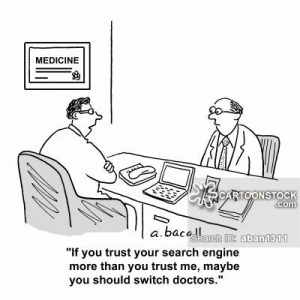Should Informed Consent be based on rational beliefs? A Critique:
Julian Savulsecu and Richard W Momeyer argue, “being autonomous requires … a person [to] hold rational beliefs” (Savulsecu & Momeyer 282). They make an important distinction between rational beliefs and rational choice. Rational beliefs is the knowledge of the situation regarding its accurately and validity. Rational choice is how a person acts upon the beliefs that they have. When specifically applying this to the medical world, Savulsecu and Momeyer believe that it is not enough to simply provide information to the patients; rather, the physicians should help their patients with more rational thinking and deliberations.
Overall, I do not agree with Savulsecu’s and Momeyer’s argument of rational beliefs. Autonomy does not, and should not, correlate with a persons belief – knowledge – or the rationality of choice behind it. Autonomy is very basic. It is the right or condition of self-government I would argue that a person’s autonomy should be based off the action a person takes. Being autonomous is an action – similar to the action of jumping. If you meet a set of criteria that distinguishes an action form others, then I believe that you have preformed that action. If both feet come off the ground and I elevate my body, then I have jumped. In the case of autonomy, a person would preform a self-governing action. Performing this action does not require extensive knowledge on a situation, only the person’s opinion at that moment of time, and the action itself. When the action is complete, the person has preformed acted autonomously and therefore responsible for the outcomes of their actions.
Rationality and true/false beliefs do not hold much weight when deciding whether a person is/was autonomous. Acting rationally upon true beliefs may lead to a better consequence, however the quality of the consequence should not dictate whether or not it was an autonomous decision. Take the Jehovah Witness case for an example. The doctor actions to transfuse or not, regardless of the information he knew, would be his decision and his decision alone. When a willing, conscious effort is made to preform a task, that action is autonomous; and therefore, in that moment, the performer of such action has autonomy.
I agree with the end result and the change they want. I do believe that doctors should be made to give a more conscious effort to teach and educate their patients. Not only does this help the doctor feel more at ease when making decisions mid-surgery, but also creates a more trusting relationship between the doctor and patient. None the less, I would like to stress being autonomous has more to do with the action than the belief or choice behind the action.
Alex Liu
Citations:
Savulescu, J., and R. W. Momeyer. “Should informed consent be based on rational beliefs?” Journal of Medical Ethics 23.5 (1997): 282-88. Web.

 Dilemma:
Dilemma:



